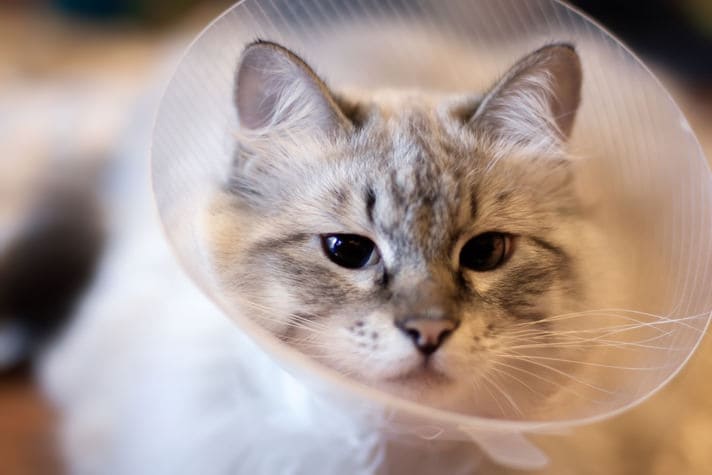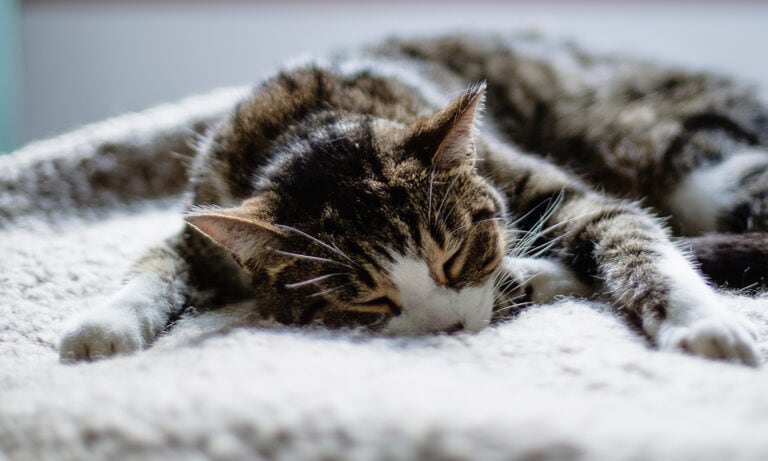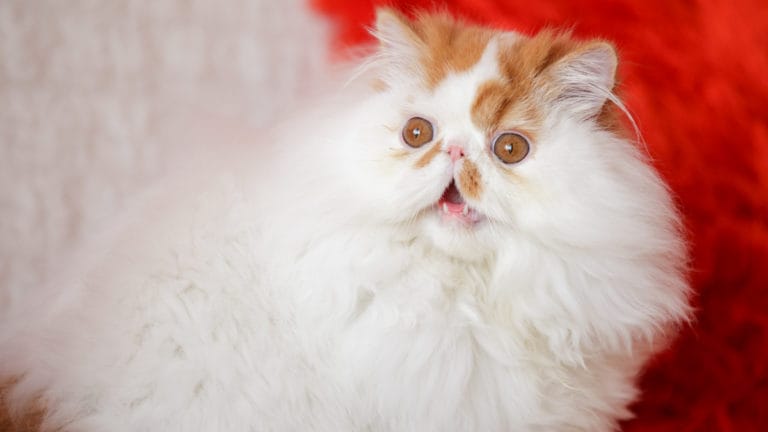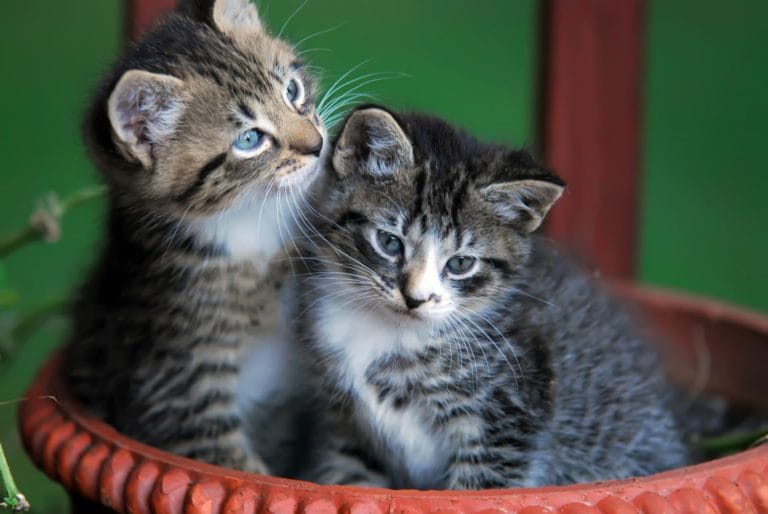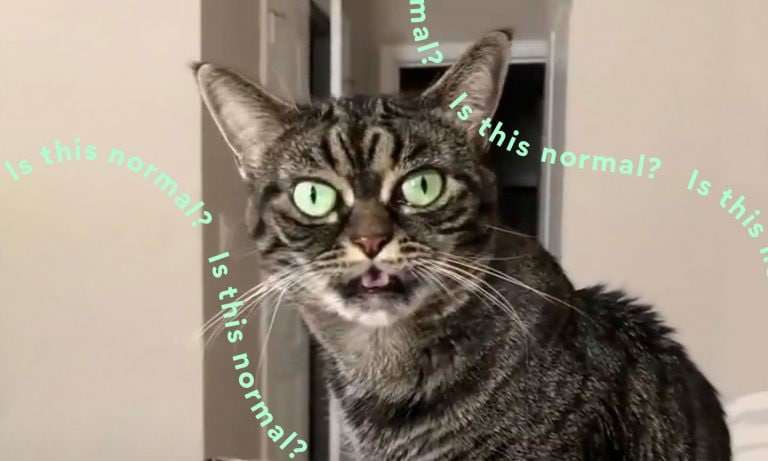Most of us realize the importance of spaying our feline friends. Yet some owners hesitate to go through with it for fear that their cat’s behavior or personality might change after the surgery. So let’s look at this.
To start with, Mikel Delgado, a certified cat behavior consultant and co-owner of Feline Minds in Berkley, California, confirms that no research shows any negative effects on a cat’s personality after spay.
Actually, in addition to preventing unplanned litters and decreasing the chances of hormone-related diseases, one of the reasons people spay their cats is to reduce or stop unwanted behaviors, such as:
- Roaming in search of a male cat to mate with
- Irritability from the hormone fluctuations
- Aggression when competing for male attention or protecting her cat litter
- Frequent as well as inappropriate urination to attract males and the unwanted attention of unneutered males showing up
“In the wild, healthy animals function to hunt and reproduce, and that doesn’t really work for us as pet keepers or guardians,” Delgado explains. “A lot of the unaltered behaviors are undesirable for owners.”
What To Expect Immediately After The Spay
Just out of surgery, expect to see a groggy and perhaps a little disoriented cat coming out of anesthesia. Some cats show more aggression when in pain and feeling vulnerable, so Maria Brömme, DVM, a veterinarian at Alicia Pet Care Center in Mission Viejo, California, recommends providing her with a quiet and warm location in which to recover.
“Ensure easy access to a litter box, water and food — the amount will be recommended by your veterinarian, but it usually is half of her normal serving,” she says. “Your cat likely will be sore around her incision, so be gentle when handling her for the first few days.”
You can expect your cat to act differently for a few days while recovering from the operation; however, experts reassure that her personality will remain unchanged.
For many cats, a trip to the vet and subsequent surgery might be a frightening and stressful experience. So your cat might act timid or jumpy for a few days after. This change is temporary, and you can encourage her with gentle petting along with a warm and quiet location for recovery.
My spayed adult cat still hides out of reach under the bed for at least half the day after any trip to the vet, so I give her space and quiet, sometimes some gentle words and a treat, and wait patiently for her to readjust.
“Behavior changes immediately after a spay are more due to the surgery itself,” says trainer and behaviorist Lisa Bach, owner of Boomerang Pet Care in Deerfield, Wisconsin. “They might experience tenderness, be a little less active and have a bit of a decreased appetite for a day or two, but in two to three days, the cat should bounce back to her normal self.
“There is no statistical evidence of behavior change due to surgery,” she adds. “The biggest behavior change is female cats not going into heat.”
What To Watch For
All three experts say owners need to keep an eye on the incision and check for redness, swelling and seeping of fluids, which can signal an infection and warrant a recheck with the veterinarian.
“If your cat has a reduced interest in eating for more than two days after getting spayed, it is time to contact your veterinarian,” Brömme says. “If your cat has been licking excessively at her incision, the chance of an infection developing is high. This is why the dreaded ‘cone of shame’ is so important in our post-operative patients. Also contact your veterinarian if you think your cat still is groggy or lethargic the day following surgery.”
Cats typically rebound in a day or two after this routine surgery. All my cats were fixed as kittens, and the females definitely took a their time getting around and back to normal that first day.
Also keep in mind that the hormonal changes do not happen overnight, Delgado says. They are subtle and gradual; your cat will not wake up like a different cat.
Bach added that if your cat appears hesitant to jump after a few days, give your vet a call.
Long-Term Effects
Some cat owners have expressed concerns about whether their pet’s general personality will change after being spayed. Will altered cats be less affectionate? Or will they become fat and lazy? Experts say not to worry.
“Overall, your cat’s personality should not change,” Brömme says.
Your cat may seem more reserved after getting the surgery, but that’s because her hormones aren’t fluctuating like they used to when she had heat cycles.
“Spaying eliminates heat cycles, and cats can be extremely affectionate and vocal during a heat cycle,” Brömme says. “As a result, your cat might seem a bit calmer after getting spayed because she no longer will have these cycles.”
As for becoming fat and lazy? Your cat may appear a little lazy because she won’t be performing those mate-seeking behaviors, but ultimately it’s up to you to make sure she gets enough exercise and stays in shape. We all know that too much food and too little exercise encourages weight gain in humans. It’s the same for our frisky felines.
“Of course, getting spayed means no more mate-seeking behaviors or energy expended into rearing kittens,” Brömme explains. “But if your cat has a very sedentary lifestyle and unlimited access to food, she likely will gain weight.”
Maintaining a healthy body weight is vital to your cat’s long-term well being, so Brömme recommends feeding your cat a high-quality, balanced diet and keeping her active by playing with her, using puzzle feeders and providing environmental enrichment.
“Annual wellness visits with your veterinarian will help you stay on track with your cat’s weight, dietary requirements and overall health,” she adds.
Bach also addressed owners’ concerns about weight gain after spaying.
“Statistically there is no evidence that cats get lazy or less active after being spayed,” she says. “It’s more to do with husbandry.”
Housecats live relatively sedentary lives unless we provide them with an enriched and stimulating environment with things to scratch, climb and play with, Delgado says.
In addition to addressing the cat’s lifestyle, she suggests looking at other things happening around the same time as the spay surgery that might impact the cat’s behavior. These might be changes in the household, trying a new cat food or simply the aging process — cats can grow less active as they mature, and development can lead to personality traits coming out more or calming down more.
To balance any changes, Delgado recommends lots of interactive playtime and keeping it on the cat’s terms as well as using clicker training and other ways of reinforcing behaviors you like.
“Don’t expect sudden changes in your spayed cat, but subtle changes might take place,” Bach says. “There is no evidence spaying a cat will begin negative behaviors.”
With a little patience and a lot of love, your cat will be back to normal in no time after her spay surgery. (And don’t forget to give lots of cuddles to speed up the process!)
Read More
Share:
